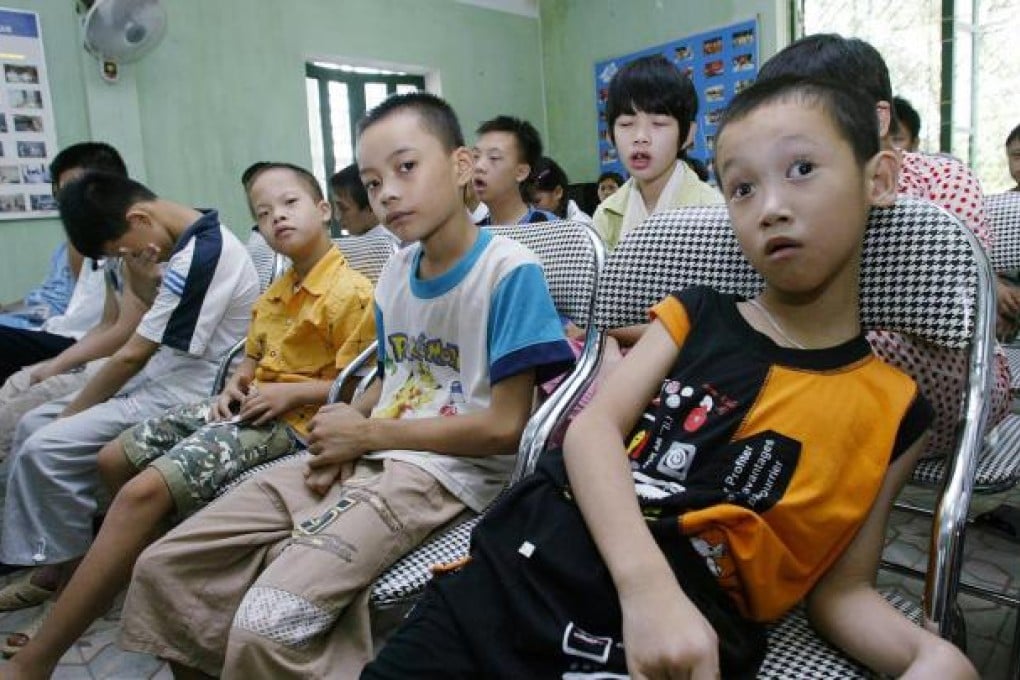Vietnamese school trains disabled victims of Agent Orange
It is hoped these skills will help them set up a small business in future, as they are unlikely to get traditional employment after "graduating" from this Vietnamese school.

In a special school, about 11 kilometres southwest of Hanoi, more than 100 students learn to read, write and count, and also pick up vocational skills such as embroidery, sewing and making decorative plastic flowers.
It is hoped these skills will help them set up a small business in future, as they are unlikely to get traditional employment after "graduating" from this Vietnamese school.
The children, along with 40 war veterans, are residents of the Vietnam Friendship Village in Van Canh Commune in Ha Tay province. They all suffer from mental and physical ailments caused by exposure to Agent Orange, the herbicide that US military forces sprayed on lands in Vietnam and Laos between 1962 and 1971 to remove forest cover, destroy crops and clear vegetation.
One of the world's most toxic poisons, Agent Orange - so named because it came in chemical drums marked with orange stripes - is linked to cancers, diabetes, birth defects and other disabilities. It's a bitter and lasting legacy of the Vietnam war. "The Agent Orange victims are among the poorest in Vietnam," says Dang Vu Dung, director of the Friendship Village.
Not only are the victims unable to find jobs to support themselves, Dung says, the children's parents - most Agent Orange victims themselves - spend a lot of money for years, or even a lifetime, on therapy and medication.
According to Oanh, a teacher at the village for 15 years, the children usually stay for three to four years. Some only see their families just once a year as most live in remote provinces and can't afford the trip to Hanoi.